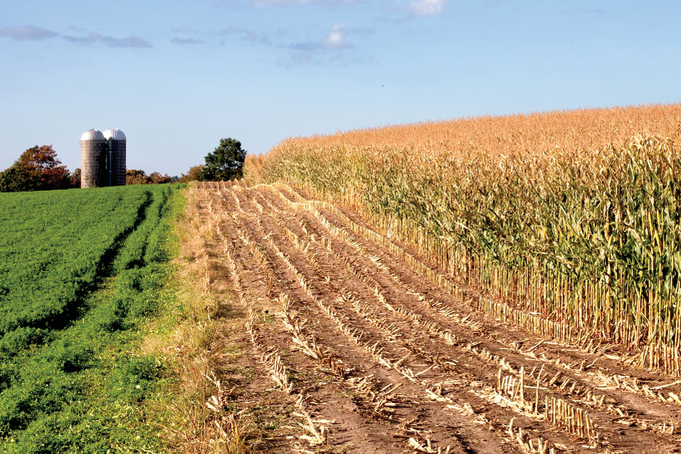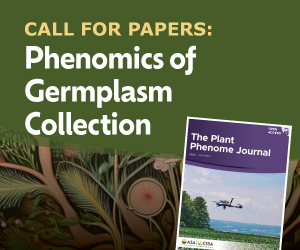Alfalfa in Rotation Reduces Nitrate Leaching Potential

Increasing nitrate contamination of groundwater has raised significant environmental and health concerns in the Midwest cropping systems. Excessive fertilizer N use in annual crop rotations contributes to a considerable portion of this contamination. One way to reduce this is to include perennial crops in the annual cropping system. However, the effect of alfalfa in the rotation on nitrate and soil water in the vadose zone remained uncertain.
A team led by the University of Nebraska–Lincoln conducted a study to evaluate the impact of alfalfa in rotation with annual crops on the vadose zone nitrate concentration using six pairs of alfalfa rotation versus continuous corn in central Nebraska. The alfalfa rotation compared with continuous corn had 55% less vadose zone nitrate and 26% less soil water, indicating less nitrate leaching potential to aquifers. In addition, the alfalfa rotation had 47% higher soil organic carbon, indicating a long‐term potential for soil carbon sequestration.
The rotation of annual crops with alfalfa is a highly effective means of reducing nitrate leaching to aquifers. Therefore, increasing alfalfa in crop rotations could effectively protect drinking groundwater quality.
Adapted from Singh, A., Afzal, T., Woodbury, B., Wortmann, C., & Iqbal, J. (2023). Alfalfa in rotation with annual crops reduced nitrate leaching potential. Journal of Environmental Quality. https://doi.org/10.1002/jeq2.20473
Text © . The authors. CC BY-NC-ND 4.0. Except where otherwise noted, images are subject to copyright. Any reuse without express permission from the copyright owner is prohibited.







